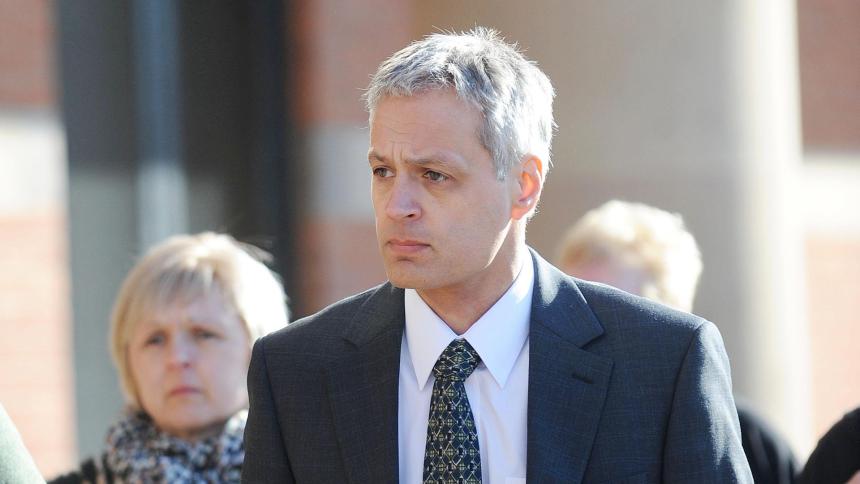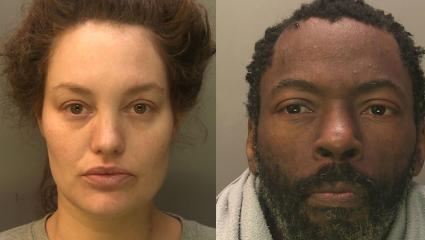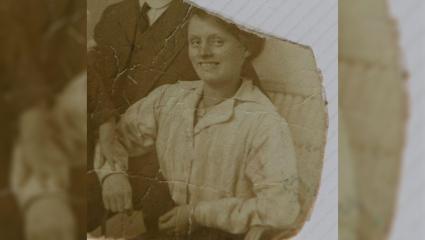
Murder at the Post Office: Did Robin Garbutt kill his wife?
On 23rd March 2010, the small North Yorkshire village of Melsonby was shaken by news that felt more like a TV crime thriller than reality. Inside the village post office, which also doubled as the home of Robin and Diana Garbutt, shopkeeper Diana was found bludgeoned to death in her bed.
Robin, her husband, claimed that armed robbers had broken in, attacked his wife and stolen thousands of pounds in cash. For a quiet rural community, the horror was unimaginable. A beloved shopkeeper has died, and her husband is at the centre of a terrifying tale.
Join Crime+Investigation as we delve into the post office murder and explore the case, the trial and why some people still question Mr Garbutt’s guilt.
The morning of the murder
On the day of the murder, Robin stated that he had opened the post office early as usual. Three masked men armed with a gun confronted him, demanded money, and threatened his life. He claimed he handed over more than £16,000 before being forced upstairs, where he discovered Diana’s body.
She had been brutally beaten with an iron bar while she slept. Robin called the police, and from the very start, officers were sceptical. Why would armed robbers strike a village post office in broad daylight? Why would they kill his wife and leave no trace of themselves behind?
A husband under suspicion
As the investigation unfolded, attention quickly turned to Robin himself. Detectives found no forensic evidence to support the story of a break-in. The post office’s alarms showed no signs of tampering and no witnesses saw masked men in the area.
Financial pressures soon became known. The couple were in debt, and Diana had reportedly grown unhappy in the marriage. Prosecutors painted Robin as a man under strain, motivated by money troubles and marital discord, who had staged the robbery to cover up the murder.
The trial and conviction
In April 2011, Robin Garbutt went on trial at Teesside Crown Court. Over several weeks, the jury heard about the couple’s finances, Robin’s version of events and the grim injuries Diana had suffered.
The prosecution argued the robbery was a fabrication, designed to mask a killing carried out in the family home. The defence insisted Robin’s story was genuine, that masked raiders had terrorised him and murdered his wife while he was powerless to intervene.
After lengthy deliberations, the jury returned a guilty verdict. Robin Garbutt was sentenced to life imprisonment with a minimum term of 20 years. The judge described the crime as a brutal betrayal of trust.
A divided public
The conviction was not the end of the story. From the outset, Robin maintained his innocence, and a vocal group of supporters rallied behind him. The 'Justice for Robin' campaign emerged, arguing that the police investigation was flawed and that crucial evidence had been overlooked.
Questions were raised about the timing of the robbery, inconsistencies in forensic reports and whether investigators were too quick to focus on Robin instead of looking for alternative suspects.
Questions that won’t go away
One of the most disputed points is the timeline. Robin claimed the robbery happened after he had opened the shop early in the morning, yet prosecutors suggested Diana was killed hours earlier in the night.
Campaigners argue that DNA and forensic analysis didn’t definitively rule out other intruders. They also point to the alleged mishandling of evidence and the appearance of witnesses who later came forward, suggesting suspicious activity near the post office that was not fully investigated. For supporters, these doubts cast a shadow over the conviction and raise the possibility of an injustice.
Life behind bars
Robin has now been in prison for more than a decade. He continues to fight his conviction, supported by campaigners who believe he was wrongly imprisoned. Appeals have so far been rejected, with judge’s ruling that the conviction was safe. Yet Robin’s case has become a talking point in discussions about wrongful convictions in Britain, where campaigners argue the justice system can sometimes favour a neat narrative over lingering questions.
For Diana’s family, however, the verdict provided a form of closure, even if it was painful. They lost a daughter, sister and friend in the most shocking of circumstances, and for them, the focus has always remained on Diana’s life rather than the arguments over Robin’s guilt.
Love true crime? Stay in the know with the Crime+Investigation Newsletter! Get exclusive access to new articles, episodes, clips, competitions, and more – delivered weekly and completely free. Don't miss out – sign up today!












